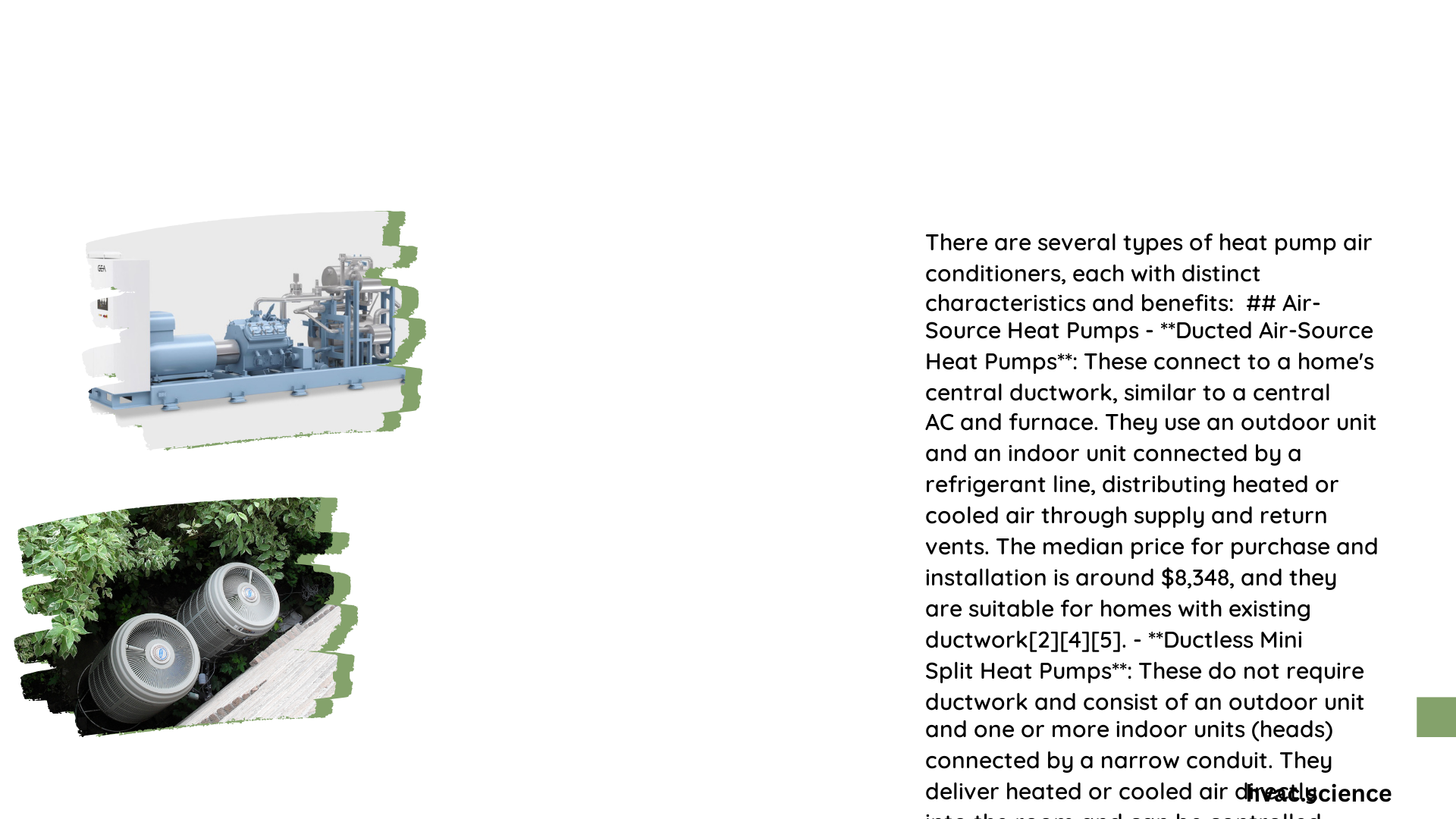Heat pump air conditioners represent a sophisticated approach to home temperature management, offering versatile cooling and heating solutions across multiple system configurations. These innovative systems leverage advanced refrigeration technology to transfer heat efficiently, providing homeowners with flexible, energy-efficient alternatives to traditional air conditioning units. From compact ductless designs to comprehensive multi-zone systems, heat pump air conditioners adapt to diverse residential requirements while maintaining superior performance and environmental sustainability.
What Are the Primary Types of Heat Pump Air Conditioners?
Ductless Heat Pump Air Conditioners
Ductless heat pump air conditioners, commonly known as mini-split systems, offer remarkable flexibility for home cooling and heating. These systems consist of two primary components:
| Component | Function | Characteristics |
|---|---|---|
| Outdoor Unit | Compressor and condenser | Handles heat exchange |
| Indoor Unit | Evaporator and fan | Distributes conditioned air |
Key Advantages
- No ductwork required
- Independent zone control
- Easy installation
- High energy efficiency
Multi-Zone Heat Pump Systems
Multi-zone heat pump systems expand upon ductless technology by allowing multiple indoor units to connect to a single outdoor unit. This configuration provides:
- Customized temperature control for different home areas
- Enhanced energy management
- Scalable cooling and heating solutions
Inverter Heat Pump Technology
Inverter heat pumps represent the pinnacle of cooling technology, featuring:
- Variable-speed compressors
- Precise temperature modulation
- Reduced energy consumption
- Quieter operation
How Do Different Heat Pump Air Conditioners Perform?

Performance Metrics
Heat pump air conditioners are evaluated using two critical metrics:
- SEER (Seasonal Energy Efficiency Ratio)
- Measures cooling efficiency
- Higher ratings indicate better performance
-
Modern systems range from 15-25 SEER
-
HSPF (Heating Seasonal Performance Factor)
- Measures heating efficiency
- Higher ratings demonstrate superior heating capabilities
- Typical range: 8.2-13
Efficiency Comparison
| Heat Pump Type | Average SEER | Average HSPF | Installation Complexity |
|---|---|---|---|
| Ductless | 20-25 | 10-13 | Low |
| Multi-Zone | 18-22 | 9-12 | Medium |
| Inverter | 22-25 | 11-13 | Medium-High |
What Factors Influence Heat Pump Air Conditioner Selection?
Climate Considerations
- Cold regions: Look for heat pumps with low-temperature performance
- Moderate climates: Ideal for most heat pump technologies
- Warm regions: Focus on high SEER ratings
Installation Requirements
- Home size
- Existing infrastructure
- Budget constraints
- Energy efficiency goals
Cost and Investment Analysis
Initial Investment
- Ductless systems: $2,000 – $7,000
- Multi-zone systems: $3,000 – $10,000
- Inverter systems: $4,000 – $12,000
Long-Term Savings
- Reduced energy consumption
- Potential tax credits
- Lower maintenance costs
Maintenance and Longevity
Recommended Practices
- Annual professional inspection
- Regular filter replacement
- Keep outdoor units clean
- Monitor refrigerant levels
Expected Lifespan
- Ductless systems: 15-20 years
- Multi-zone systems: 12-18 years
- Inverter systems: 15-25 years
Emerging Technologies and Future Trends
Upcoming Innovations
- Smart home integration
- Enhanced refrigerant technologies
- Improved energy storage capabilities
- AI-driven temperature management
Conclusion
Selecting the right heat pump air conditioner involves carefully evaluating your specific needs, local climate, and long-term efficiency goals. Each type offers unique advantages, making professional consultation crucial for optimal selection.
